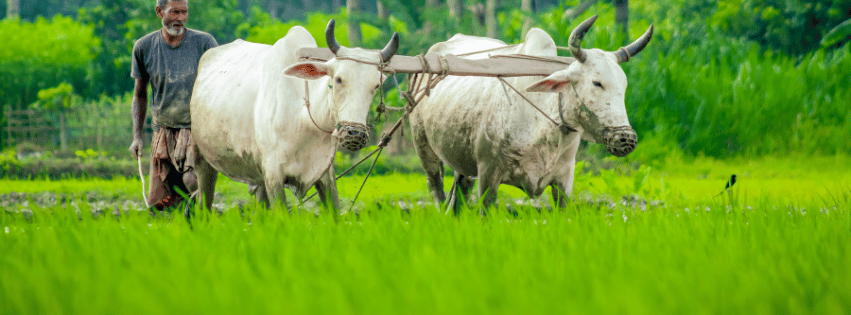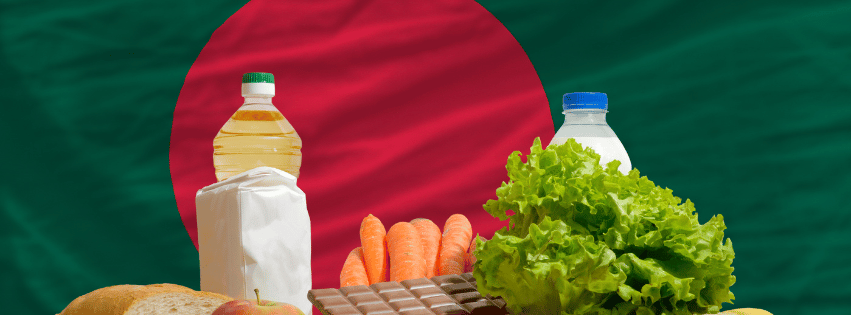Blog
Is It Safe to Buy Groceries from Bangladesh?
Bangladesh, a country known for its rich cultural heritage and burgeoning economy, is also gaining recognition for its agricultural prowess. The country’s fertile land and favorable climate conditions make it an ideal location for growing a variety of crops, contributing significantly to its agricultural sector. As the global demand for organic and fresh produce increases, many consumers are considering sourcing their groceries from Bangladesh. This article explores the safety, quality, and reliability of buying groceries from Bangladesh, delving into various factors such as food safety regulations, quality control measures, supply chain integrity, and consumer experiences.
Overview of Bangladesh’s Agricultural Sector

Bangladesh’s agricultural sector is a cornerstone of its economy, employing around 40% of the workforce and contributing approximately 14% to the national GDP. The country’s primary agricultural products include rice, jute, tea, potatoes, vegetables, and tropical fruits. Over the years, Bangladesh has made significant strides in modernizing its agricultural practices, adopting new technologies, and improving crop yields.
Food Safety Regulations in Bangladesh
Ensuring the safety and quality of food products is paramount for any country. In Bangladesh, the government has implemented several regulations and standards to oversee the production, processing, and distribution of food items. The Bangladesh Food Safety Authority (BFSA), established under the Food Safety Act of 2013, is the primary regulatory body responsible for ensuring food safety in the country. The BFSA works in collaboration with other government agencies, such as the Department of Agricultural Extension (DAE) and the Bangladesh Standards and Testing Institution (BSTI), to enforce food safety standards and conduct regular inspections.
Quality Control Measures
Quality control is a critical aspect of the agricultural supply chain in Bangladesh. Farmers, producers, and exporters adhere to various quality control measures to ensure that their products meet international standards. These measures include:
- Good Agricultural Practices (GAP): Farmers are encouraged to follow GAP guidelines, which cover various aspects of crop production, such as soil management, pest control, and post-harvest handling. GAP certification is essential for accessing international markets and ensuring consumer safety.
- Organic Farming: Organic farming practices are gaining popularity in Bangladesh, driven by the global demand for organic produce. Organic certification requires farmers to avoid synthetic pesticides and fertilizers, ensuring that the produce is free from harmful chemicals.
- Hazard Analysis and Critical Control Points (HACCP): HACCP is a systematic approach to food safety that identifies potential hazards and implements control measures to prevent contamination. Many food processing and packaging facilities in Bangladesh have adopted HACCP standards to ensure the safety of their products.
- Laboratory Testing: Food products are subjected to rigorous laboratory testing to detect contaminants, pesticide residues, and microbial pathogens. Accredited laboratories conduct these tests, ensuring that the products meet safety and quality standards.
Supply Chain Integrity
The integrity of the supply chain plays a crucial role in maintaining the safety and quality of groceries. In Bangladesh, the supply chain for agricultural products involves multiple stakeholders, including farmers, wholesalers, processors, and exporters. To ensure the integrity of the supply chain, several measures are in place:
- Traceability: Traceability systems are implemented to track the journey of food products from the farm to the consumer. This helps in identifying the source of any contamination and taking corrective actions promptly.
- Cold Chain Management: For perishable items such as fruits, vegetables, and dairy products, maintaining the cold chain is essential to prevent spoilage and ensure freshness. Cold storage facilities and refrigerated transportation are used to preserve the quality of perishable goods.
- Packaging and Labeling: Proper packaging and labeling are crucial for protecting food products from contamination and providing consumers with important information. Packaging materials are selected to prevent moisture, light, and microbial contamination, while labels include details such as the product’s origin, ingredients, and expiry date.
- Export Certification: Exporters of agricultural products from Bangladesh are required to obtain certification from relevant authorities, such as the Export Promotion Bureau (EPB) and the Department of Agricultural Extension (DAE). These certifications ensure that the products meet the quality and safety standards of the importing countries.
Consumer Experiences and Perceptions

Consumers’ perceptions and experiences play a significant role in determining the safety and reliability of groceries sourced from a particular country. In recent years, Bangladeshi agricultural products have gained popularity in international markets, including the Middle East, Europe, and North America. Positive consumer experiences and testimonials highlight several key factors:
- Freshness and Flavor: Many consumers appreciate the freshness and unique flavor profiles of Bangladeshi produce. The country’s tropical climate and fertile soil contribute to the production of high-quality fruits and vegetables.
- Affordability: Bangladeshi groceries are often more affordable compared to those from other countries. The lower cost of production and favorable exchange rates make Bangladeshi products competitively priced in international markets.
- Ethical Sourcing: Consumers are increasingly concerned about the ethical aspects of their food sources. Bangladeshi agricultural practices, particularly those involving small-scale farmers and cooperatives, are often seen as more ethical and sustainable.
- Cultural Connection: For the Bangladeshi diaspora and individuals with cultural ties to South Asia, sourcing groceries from Bangladesh provides a sense of connection to their heritage. Traditional ingredients and products from Bangladesh help maintain cultural culinary practices.
Challenges and Areas for Improvement
While there are many positives associated with buying groceries from Bangladesh, there are also challenges and areas for improvement:
- Infrastructure: The agricultural infrastructure in Bangladesh, including transportation, storage, and processing facilities, needs further development to ensure the consistent quality and safety of food products.
- Pesticide Use: Although organic farming is on the rise, conventional farming practices in Bangladesh still involve the use of synthetic pesticides. Ensuring proper pesticide management and reducing pesticide residues in food products remain critical challenges.
- Awareness and Training: Educating farmers and producers about best practices in agriculture, food safety, and quality control is essential. Training programs and workshops can help improve the overall standards of food production in the country.
- Regulatory Enforcement: While regulations are in place, effective enforcement and monitoring are crucial to ensuring compliance. Strengthening regulatory bodies and increasing the frequency of inspections can help maintain high standards of food safety.
Government and Private Sector Initiatives
Both the government and private sector in Bangladesh are actively working to address the challenges and improve the safety and quality of agricultural products:
- Government Programs: The government of Bangladesh has launched various programs to support the agricultural sector, such as subsidizing fertilizers, providing financial assistance to farmers, and promoting sustainable farming practices. Initiatives like the National Agricultural Technology Program (NATP) aim to enhance productivity and ensure food security.
- Private Sector Investments: Private companies and agribusinesses are investing in modernizing the agricultural supply chain. This includes setting up advanced processing facilities, cold storage units, and implementing traceability systems. Collaborations between private companies and farmers’ cooperatives are also helping to improve quality control and market access.
- International Partnerships: Bangladesh is forging partnerships with international organizations and foreign governments to enhance its agricultural capabilities. These partnerships focus on technology transfer, capacity building, and market access for Bangladeshi products.
- Certifications and Standards: The adoption of international certifications and standards, such as GlobalGAP and ISO, by Bangladeshi producers and exporters is helping to build trust and credibility in global markets. These certifications demonstrate a commitment to quality and safety.
Is It Safe to Buy Groceries from Bangladesh? Future Prospects

The future of buying groceries from Bangladesh looks promising, given the country’s commitment to improving its agricultural sector and ensuring food safety. Several trends and developments are likely to shape the future:
- Expansion of Organic Farming: With the growing demand for organic produce, more farmers in Bangladesh are likely to adopt organic farming practices. This will not only cater to health-conscious consumers but also enhance the country’s reputation as a source of safe and healthy food products.
- Technological Advancements: The adoption of modern technologies, such as precision farming, IoT-based monitoring, and blockchain for traceability, will further enhance the safety and quality of Bangladeshi agricultural products. These technologies will help in efficient resource management, real-time monitoring, and ensuring transparency in the supply chain.
- Sustainable Practices: Sustainability is becoming a key focus in agriculture. Practices such as water conservation, soil health management, and agroforestry are likely to gain prominence in Bangladesh. Sustainable farming not only ensures long-term productivity but also meets the environmental and social expectations of global consumers.
- Market Diversification: As Bangladesh continues to improve its agricultural standards, it is expected to diversify its export markets. Exploring new markets in Asia, Africa, and Latin America, in addition to traditional markets in Europe and North America, will help mitigate risks and expand opportunities for Bangladeshi farmers and exporters.
- Consumer Education: Educating consumers about the safety and quality of Bangladeshi groceries through marketing campaigns, certifications, and transparent communication will build trust and encourage more people to choose Bangladeshi products.
Conclusion
In conclusion, buying groceries from Bangladesh is generally safe, provided that the products come from reputable sources that adhere to quality control measures and regulatory standards. The country’s agricultural sector has made significant progress in recent years, with improvements in food safety regulations, quality control practices, and supply chain integrity. Positive consumer experiences and the affordability of Bangladeshi groceries further contribute to their appeal.
However, there are challenges that need to be addressed, such as infrastructure development, pesticide management, and regulatory enforcement. Government initiatives, private sector investments, and international partnerships are playing a crucial role in overcoming these challenges and ensuring the safety and quality of Bangladeshi food products.
The future prospects for buying groceries from Bangladesh are bright, with trends pointing towards organic farming, technological advancements, sustainable practices, market diversification, and consumer education. As the country continues to enhance its agricultural capabilities and uphold high standards of food safety.
Also read our blog Online Grocery Shopping in Bangladesh in 2024.
Discover more insights and live reviews of our products: YouTube channel: Marino Bangladesh
Also stay updated by following us on Facebook Page.

